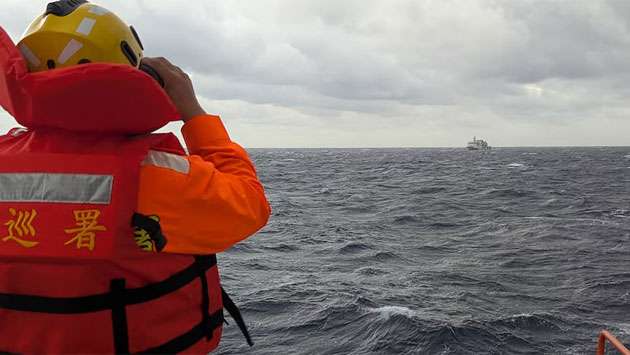An undersea cable off Taiwan’s northeastern coast has been damaged, with authorities blaming the Cameroonian-registered cargo ship Shunxin-39 for the latest maritime incident.
The Taiwan Coast Guard Administration (CGA) said it dispatched a patrol boat after receiving a report from Chunghwa Telecom at 12:40 p.m. on January 3.
The cable, located near Yehliu, New Taipei City, had four damaged cores.
Chunghwa Telecom confirmed that despite the disruption, local communications were not affected thanks to backup systems.
At around 4:40 p.m., the CGA located the Shunxin-39 seven nautical miles north of Yehliu and ordered it to return to waters outside Keelung Port for investigation.
Officials collected evidence but were unable to board the vessel due to bad weather.
China has not commented publicly on the allegations.
China’s Foreign Ministry did not immediately respond to a request for comment.
The Shunxin-39 is registered in Cameroon, and Taiwanese officials suspect it belongs to a Hong Kong-based entity with ties to mainland China.
Ho Cheng-hui, chief executive of Kuma Academy, a Taiwanese nonprofit civil defense organization, said the incident was part of a broader strategy by China to test the limits of international tolerance through “gray zone” tactics, according to the Taipei Times.
“This is not an isolated incident,” Mr. Ho said.
The CGA has referred the case to the District Prosecutors’ Office, which will seek criminal liability and award damages.
Global Pattern of Undersea Sabotage
The Taiwan incident echoes a wave of similar infrastructure sabotage around the world, particularly in the Baltic Sea, where critical cables and pipelines have been damaged.
In November 2024, two fiber optic cables were severed in the Baltic Sea, drawing investigators’ attention to the Chinese bulk carrier Yi Peng 3.
A month later, in December, Finland opened a sabotage investigation after the Estlink 2 power line and four telecom lines were damaged.
Finnish authorities suspect that the Eagle S tanker, part of Russia’s “shadow fleet,” dragged its anchor along the seabed and damaged the cables. A Finnish court recently refused to release the ship.
Several police investigations are ongoing, but no suspects have been brought to justice.
The incidents have raised concerns about maritime security as NATO vows to bolster its presence in the Baltic region.
Meanwhile, in response to its maritime threats, Taiwan is stepping up efforts to secure its communications infrastructure.
Plans include deploying low- and medium-Earth orbit satellites to reduce reliance on vulnerable undersea cables.



